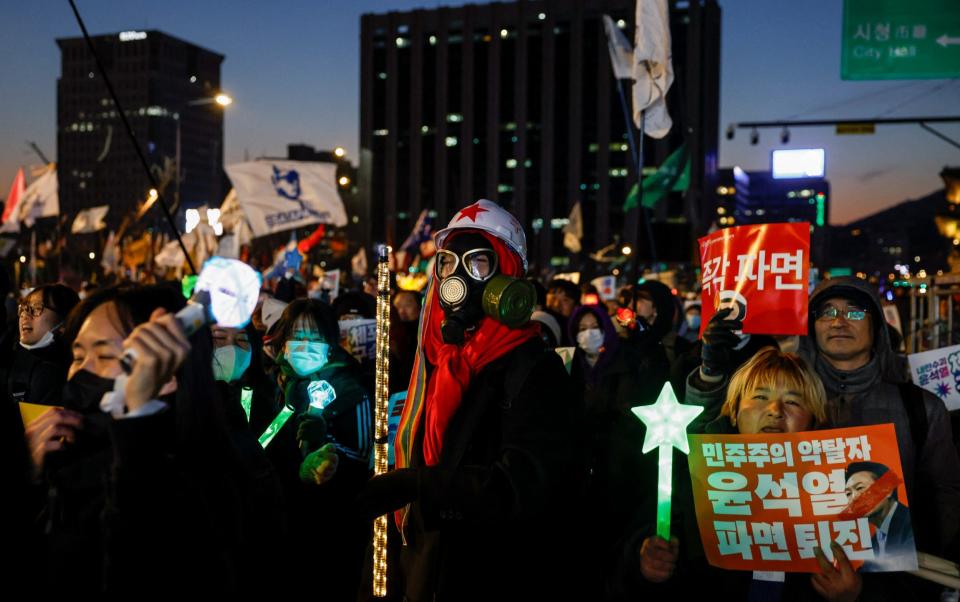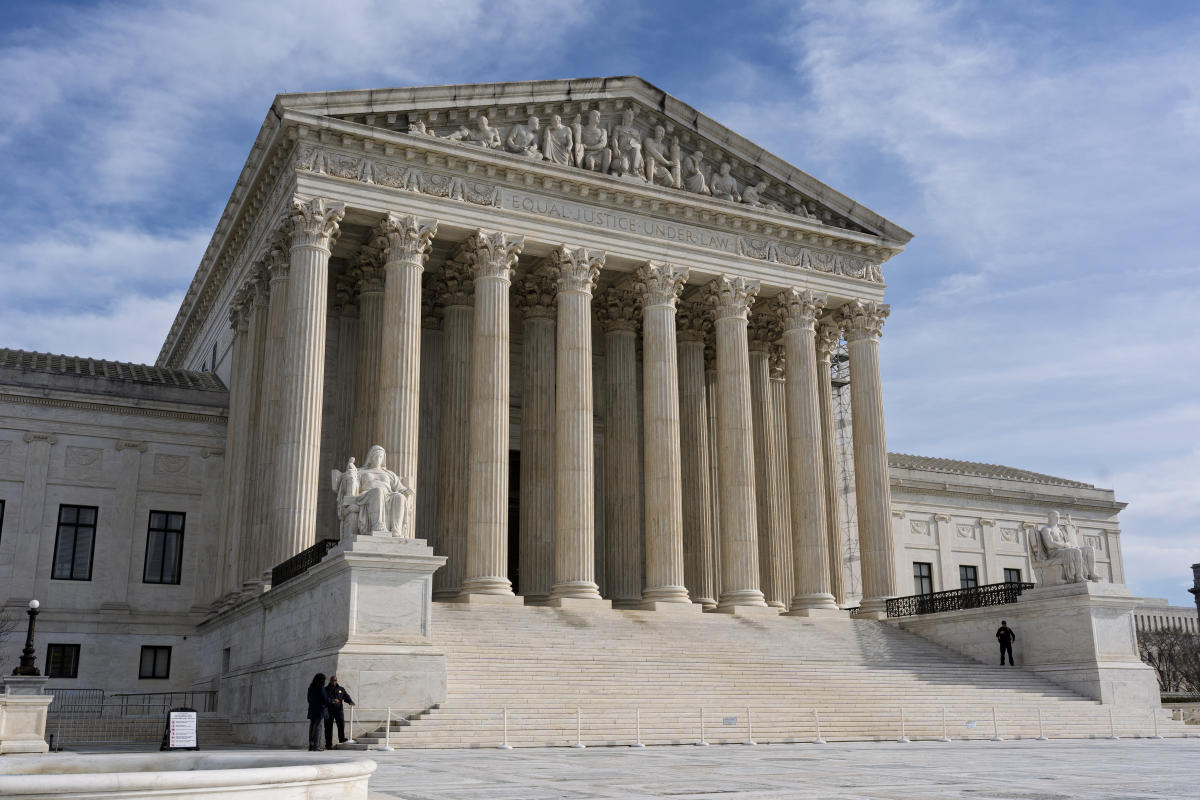South Korea’s impeached president has received a pay rise despite being holed up inside a guarded compound after his botched martial law declaration.
Yoon Suk Yeol’s salary is set to increase by 3 per cent to 262.6 million won (£147,000), in line with the standard for government officials, even though he could be arrested this week.
Mr Yoon decamped to his fortified hillside villa in Seoul after parliament voted to suspend him last month over his ill-fated martial law decree on Dec 3, with investigators vowing to arrest him in a separate probe into possible insurrection.
Advertisement
Advertisement
While suspended from duties and hunkered down in his compound, he nevertheless remains in office until the constitutional court rules on his impeachment and will continue to receive his salary and security benefits.
Police are planning a three-day operation starting on Wednesday to arrest the president, according to South Korean broadcaster SBS.
Commanders are thought to be preparing for a “sit-in style” extended stand-off at the presidential residence, choosing to wait out resistance rather than risk violent confrontation with the presidential security service.

Demonstrators protest in Seoul against Yoon Suk Yeol, who attempted to place South Korea under martial law – TYRONE SIU/REUTERS
Police have been instructed to bring winter gear and spare batteries, as well as batons and handcuffs.
Advertisement
Advertisement
Scuffles occurred earlier this month when dozens of investigators with a warrant to detain the president were barred from entering the compound by his bodyguards.
Mr Yoon’s lawyers branded the skirmish “a betrayal of the public” and claimed the warrant was “illegal”.
The anti-corruption agency and police are debating more forceful measures to detain Mr Yoon. They have warned that presidential bodyguards who try to obstruct the execution of the warrant could be arrested on site.
In recent days, the presidential security service has been spotted fortifying the grounds with barbed wire and barricades.
Advertisement
Advertisement
More in World
Choi Sang-mok, the deputy prime minister and South Korea’s acting leader, has called for “peaceful and restrained” measures on both sides, prompting criticism from investigators who feel that Mr Choi should instruct the bodyguards to stand down.

Supporters of Yoon Suk Yeol protest near his residence in Seoul – YASUYOSHI CHIBA/AFP
Mr Yoon initially cited “anti-state forces” and North Korea as justification for suspending civilian law, but later said the measures were needed to prevent liberal opposition bogging down his agenda with its legislative majority.
After declaring martial law, he dispatched troops to surround parliament, but lawmakers who managed to get past the blockade voted to reject the measures and the cabinet lifted his declaration hours later.
Parliament impeached Mr Yoon on Dec 14, but he has since vowed to “fight to the end” against efforts to oust him.
Advertisement
Advertisement
If Mr Yoon is detained, the anti-corruption agency will have 48 hours to either request a warrant for his formal arrest or release him.
Mr Yoon’s successor as acting president, Han Duck-soo, the prime minister, who was himself impeached and is now suspended from office, will also receive a salary raise of 3 per cent to 203.5 million won (£94,000).
For comparison, the US president receives $400,000 (£329,000) and the UK Prime Minister is paid about £172,000.
EMEA Tribune is not involved in this news article, it is taken from our partners and or from the News Agencies. Copyright and Credit go to the News Agencies, email news@emeatribune.com Follow our WhatsApp verified Channel




